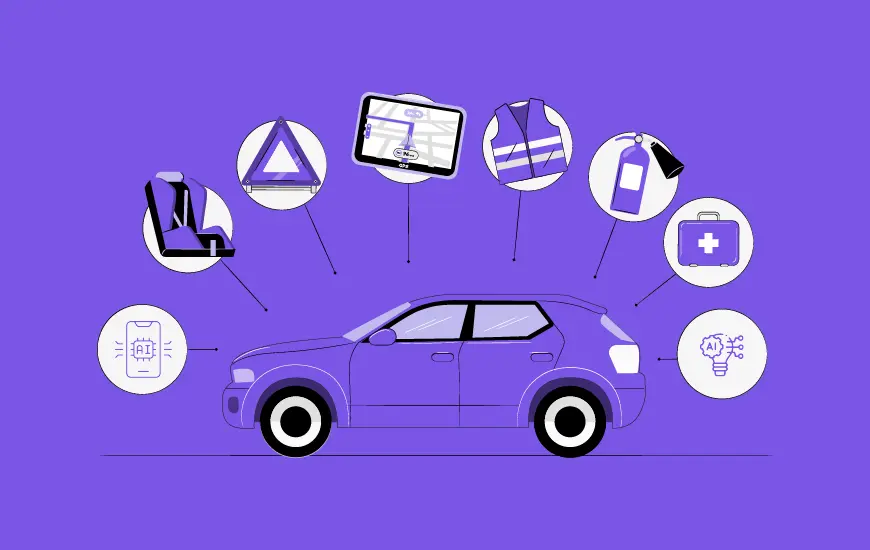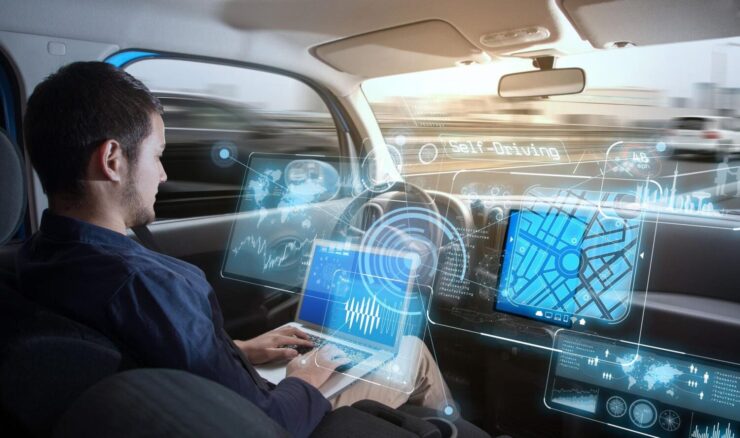The emergence of AI agents marks a new era in various industries, and the automotive sector is no exception. These intelligent systems, equipped with the ability to learn, adapt, and interact in human-like ways, are reshaping the landscape of automotive sales.
In an industry characterized by intense competition and rapid technological advancements, AI agents offer a unique edge. By integrating AI tools, like artisan.co, into their sales processes, automotive companies are not only optimizing efficiency but also creating more personalized and customer-centric experiences.
Historical Context

Traditionally, the automotive industry has relied heavily on physical showrooms, face-to-face interactions, and conventional marketing strategies. Sales representatives played a key role in guiding customers through the purchasing process, relying on their expertise and personal skills to close deals.
The integration of technology began with computerized systems for inventory management and customer databases, but it was just the tip of the iceberg.
The real transformation began with the advent of the internet, which introduced online car listings and digital marketing. However, these early technological adoptions were mere precursors to the profound impact that AI agents would soon have on automotive sales.
Their Role in Modern Automotive Sales
The transformative role of AI in the automotive sales sector marks a significant shift in how companies engage with their clientele.
By harnessing advanced data analysis capabilities, businesses now craft marketing strategies with unprecedented precision, directly addressing the specific needs and preferences of their customer base. This approach results in highly efficient and impactful promotional activities.
Virtual assistants and chatbots have become pivotal in customer relations, offering immediate and continuous support. This accessibility enhances customer satisfaction and streamlines the inquiry and pre-sales process.
Strategically, analytics driven by this technology play a vital role. These systems adeptly forecast market trends and customer preferences, empowering companies to adeptly manage their inventory.
This foresight ensures that in-demand vehicle models are readily available, aligning stock with market demand and customer expectations. The integration of these systems in inventory management and sales strategy represents a leap forward in operational efficiency and market responsiveness.
Enhancing Customer Experience

AI technology’s impact on the automotive sales experience is profound and multifaceted. It begins with the analysis of a customer’s preferences and historical behavior, enabling the recommendation of vehicles tailored to individual needs and tastes. This personalization transforms the car buying journey into a more relevant and appealing experience for each customer.
The innovation continues with virtual showrooms. These digital spaces provide an interactive and engaging platform where customers can explore various car models in intricate detail. This capability allows for a comprehensive evaluation of vehicles from home, adding convenience and accessibility to the car shopping process.
After the purchase, the role of this technology extends into after-sales services. It facilitates regular maintenance reminders and personalized service offers. This not only simplifies vehicle ownership but also fosters a deeper connection between the customer and the brand.
Overcoming Challenges in Automotive Sales
Overcoming challenges in automotive sales is a key area where advanced technology makes a significant impact. One of the foremost challenges is customer hesitations, often stemming from the overwhelming array of choices and configurations available in modern vehicles.
These systems, equipped with sophisticated algorithms, can adeptly guide customers through complex vehicle configurations, simplifying the decision-making process. They achieve this by analyzing previous interactions and feedback, identifying common obstacles, and suggesting streamlined options that align with customer preferences.
Another crucial area is pricing strategy and deal customization. With the capability to process vast amounts of market data and detailed customer profiles, these intelligent systems enable sales teams to devise pricing models that are both competitive and tailored to individual customer needs.
This strategic approach not only enhances customer satisfaction but also significantly increases the chances of closing successful deals. The combination of personalized pricing and streamlined vehicle selection process addresses key challenges in automotive sales, paving the way for more efficient and customer-centric sales experiences.
Ethical Considerations and Customer Privacy

As AI becomes more intertwined with automotive sales, ethical considerations and customer privacy emerge as critical concerns. The balance between offering personalized experiences and respecting customer privacy is delicate. Automotive companies must ensure the ethical use of AI, especially in handling sensitive customer data.
Transparency in data usage and adhering to privacy laws are essential to maintain customer trust. Furthermore, AI systems should be designed to avoid biases and ensure fairness in sales practices, reflecting the company’s commitment to ethical standards.
Future Outlook
As technology evolves, the automotive sales landscape is on the cusp of a revolution, with groundbreaking advancements on the horizon. Th e integration with technologies like Augmented Reality and Virtual Reality promises to create more immersive and interactive experiences for customers.
Imagine exploring a car model in a virtual showroom, customizing features in real-time, or experiencing a virtual test drive from your living room. Similarly, the Internet of Things (IoT) will bring a new dimension to vehicle connectivity and customer interaction, enabling seamless integration between customers’ digital lives and their automotive experiences.
In parallel, predictive analytics is set to undergo significant refinement. This enhancement will lead to more precise targeting of potential customers and more efficient inventory management. Dealerships will be able to predict with greater accuracy which models and features will be in demand, allowing them to tailor their inventory and marketing efforts accordingly.
So, this role of technology in automotive sales is transforming the entire spectrum of how vehicles are marketed, sold, and serviced. From personalized marketing strategies to after-sales service, every aspect of the customer journey is being reshaped to create a more efficient, engaging, and customer-centric experience. This is not just a technological evolution; it’s a paradigm shift in the automotive industry’s approach to engaging with consumers.
Summary

The transformative impact of AI agents in automotive sales is undeniable. They have not only optimized sales processes but also revolutionized the customer experience, offering a level of personalization and efficiency previously unattainable.
As the industry continues to evolve, embracing AI-driven sales strategies will be crucial for automotive companies looking to stay competitive and meet the changing demands of consumers.
The integration of AI in automotive sales is more than a technological advancement; it’s a pivotal shift in how the automotive industry connects with and serves its customers.
